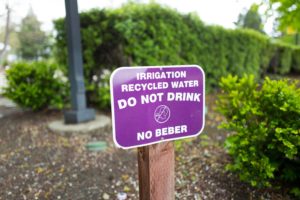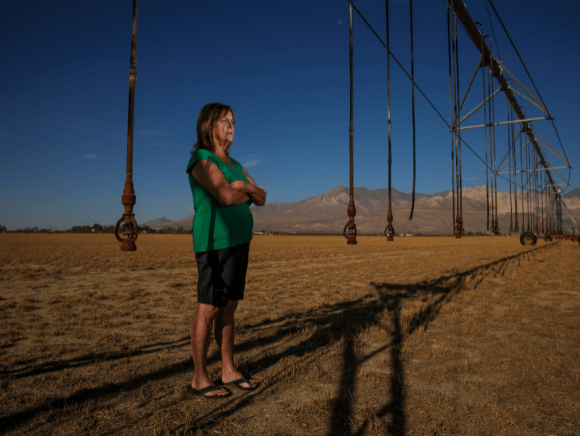With the recent California flooding, it might seem a little odd to be talking about water distribution right now, but that is exactly what Golden State officials are doing. Their plan, however, is more about correcting their supposedly racist water system and ending the white privilege that gives more rights to those with lighter skin – and deeper wallets. Ostensibly, the 2023-2025 Racial Equity Action Plan is supposed to find a way to provide more water rights to tribes and other minorities while helping to improve and sustain the Delta area watershed and fish. But it seems that, once again, hard-left rhetoric trumps all.
How Will CA Fix Its Racist Water System?
The California State Water Resources Control Board explained:
 “Racial equity is a Water Boards’ priority. We are working toward a future where race no longer predicts a person’s access to water or the quality of water resources they receive, where race does not predict professional outcomes for our employees, and where we consistently consider racial equity impacts before we make decisions.”
“Racial equity is a Water Boards’ priority. We are working toward a future where race no longer predicts a person’s access to water or the quality of water resources they receive, where race does not predict professional outcomes for our employees, and where we consistently consider racial equity impacts before we make decisions.”
There’s a lot of blame, but not much has happened yet to fix what they claim is a serious infraction. A resolution for updating the racist water system has been going on for several years, but it is considered a “living document.” The current plan includes tactics such as race-based project designs and employing more BIPOC and tribal communities to help make decisions. According to the Board’s resolution language:
“In California, race predicts a person’s access to governmental services and the quality and affordability of the services they receive. This includes the availability of safe drinking water and the collection, treatment, and reuse of wastewater. In fact, race is the strongest predictor of water and sanitation access…”
The Sacramento-San Joaquin River Delta is a major source of water for most of California, but deterioration of the aquatic ecosystem has led to the claims of “racism and oppression of Native people,” reported the Los Angeles Times. Various tribes and environmental groups have submitted a petition to make the state more accountable. They claim that because of dams and other water diversions, the water flow into the Delta has drastically diminished. According to them, about “31% of the watershed’s flow is diverted upstream from the delta, and the combined effect of these diversions and water exports cut average annual outflow from the delta by nearly half between 1986 and 2005.” The petitioners continued:
“If nothing changes, the climate crisis will push these already tenuous conditions to the brink of disaster. Without improved management, the results will include increasing salinity, proliferation of harmful algal blooms, spread of nonnative invasive species, decline of native fish species, and other harms to the estuarine ecosystem — all of which will do further violence to tribes and other vulnerable Delta communities.”

(Photo via Smith Collection/Gado/Getty Images).
A lot of the water is diverted to provide for farmlands and crops such as almonds, alfalfa, grapes, and other produce.
Chief and Spiritual Leader of the Winnemem Wintu Tribe, Caleen Sisk, said the way the water is managed now, there’s not enough going to support fish and wildlife. She asked: “How is it that Big Ag uses 80% of the water and then ships its products out of state or out of country, and uses all this water, and that the state is left with the deficit?” State data shows, however, that about 47% of the water in California’s rivers and wetlands remain there, while around 42% is diverted for agriculture. Only about 11% is used in cities.
The petitioners suggest the Delta crisis stems from California’s history of violence against Native people. In the 169-page petition, the groups wrote that the conditions represent a “continuation of California’s discriminatory water management history.” They further claimed:
“[F]ailure to adopt sufficiently protective water quality standards entrenches a discriminatory system of water rights that was founded on the dispossession of Indigenous Californians and exclusion of communities of color, and that continues to prioritize large-scale agricultural interests over those of vulnerable Californians living in the Delta.”
Environmentalists have condemned the board’s plan as “a set of backroom deals” that were determined “out of the public eye” and that will not provide enough water for the fish or the watershed. Those who submitted the petition argue that the board’s approach is wrong because the local tribes weren’t consulted. There are several threatened or endangered fish species in the area, including Chinook salmon, which, to the Winnemen Wintu tribe, are “central to their cultural and spiritual traditions.” The state’s continued construction projects meant to help increase the area’s agricultural industries are only adding to the problem, especially when the region has been in a drought for so long.
The water board met last week, but it announced that members would not be voting on the resolution because it is a “living document,” which began in 2020. And so, aside from making the board and employees more diverse, very little has been done to address the actual complaint.




